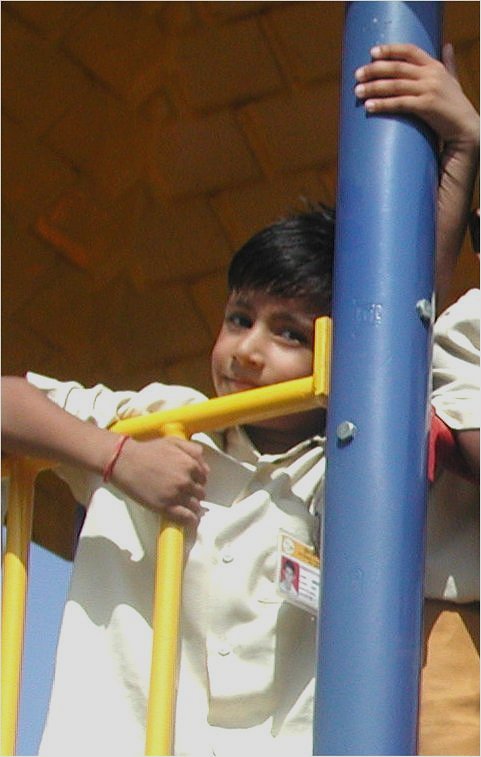
![]()
![]()
Most of us believe that geniuses are a very rare breed and only a few children are born with that potential. Every child has far more potential than comes to the surface under normal circumstances. The secret is to create conditions that enable the child to discover and express their full potential.
The
Society has long believed that new methods of education can transform
India into a leading knowledge society and fulfil Sri Aurobindo's dream
of India becoming the Jagat guru of the world. Primrose School was founded
for this purpose, and after discovering the wonderful educational insights
of Dr. Glenn Doman, they have taken them and creatively adapted them to
suit Indian conditions.
Dr. Doman has shown decisively that young children have an incredible capacity for
learning. They can learn to read multiple languages with ease at a very young age, even
before entering school. They can imbibe a wide range of general knowledge just as a form
of recreation. Children can learn at least twice as fast as they normally do in
traditional schools without homework, cramming or strain of any type.
Doman
concluded that the first six years of life are a time when children learn naturally,
spontaneously, effortlessly and joyously - as a form of play - and that the more
opportunities the child has for learning during this period, the more rapidly he learns
and the greater his capacities for learning. The younger the child, the greater the
capacity to learn. Every child's natural ability to learn far exceeds what we are tapping,
because of the deficiency in our teaching methods. Our present educational methods tap and
develop only a very small portion (at best 5%) of human capacity.
Dr. Doman has said, "Reading is the very basis
of all learning and the acquisition of knowledge, and if a mother teaches her child to
read at one, two, or three years of age, he will not fail to learn to read in school at
six, seven, or eight years of age. Literacy and success go hand-in-hand, and illiteracy
and failure go hand-in-hand. This is true in nations, in states, in cities, and in
neighborhoods, and is especially true in individuals.
The truth is
that we expose children to reading too late. By six years of age the ability to take in
raw facts, whether auditory (spoken) or visual (written), without the slightest effort is
just about gone. If children did not hear words until they were six years old, we would
have another staggering educational problem to match the present staggering reading
problem and a flood of books with titles like Why Johnny Can't Talk.
It is easier
to teach a five-year-old to read than it is to teach a six-year-old. It is easier at four
than at five, easier at three than four, easier at two than at three, easier at one than
at two and easiest of all (for the baby) below one.
The superb
truth is that babies take in raw facts such as written and spoken words at a rate that no
adult could come close to matching.
The
programmes at Dr. Doman's Institute are propagated to begin with three week babies and go
on till the child is five years. By then, the child can be well into reading books beyond
his level.
The Mother's Service Society believes that this method could revolutionalise education in India. At the request of Dr. M. Anantakrishnan, Vice Chancellor of Tamil Nadu State Council for Higher Education, the Society presented a strategy to the Confederation of Indian Industry to accelerate primary education in rural areas and computer-based technical education in urban secondary schools. These recommendations were part of the Society’s continuing work on alternative methods of education.
visit
Primrose School website:
www.primroseschool.org